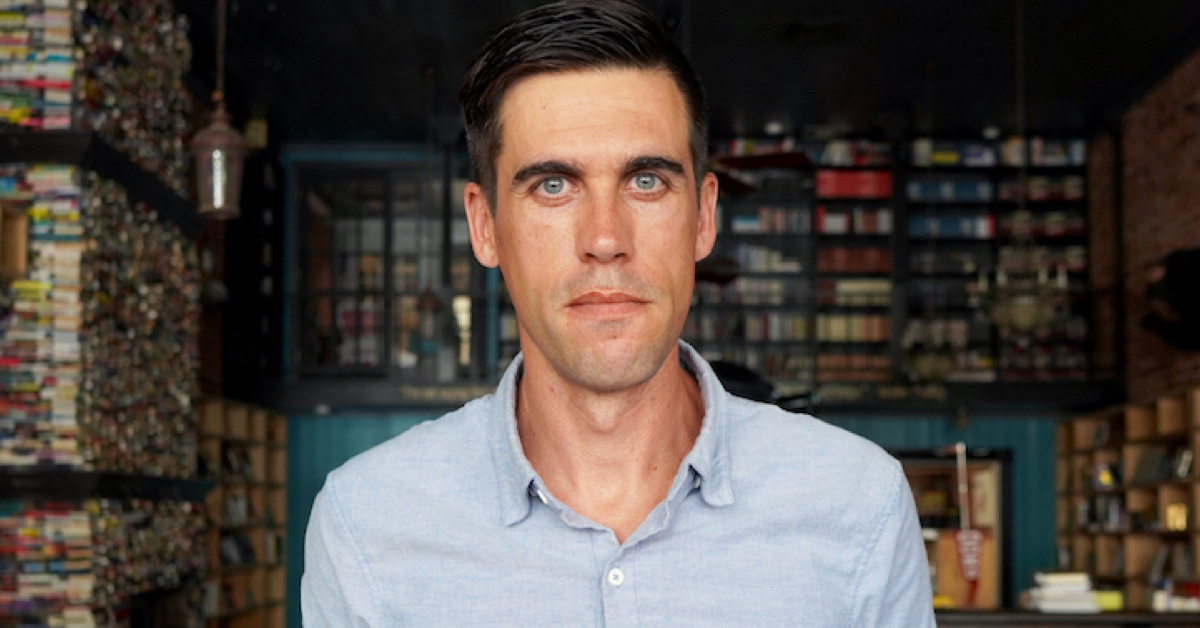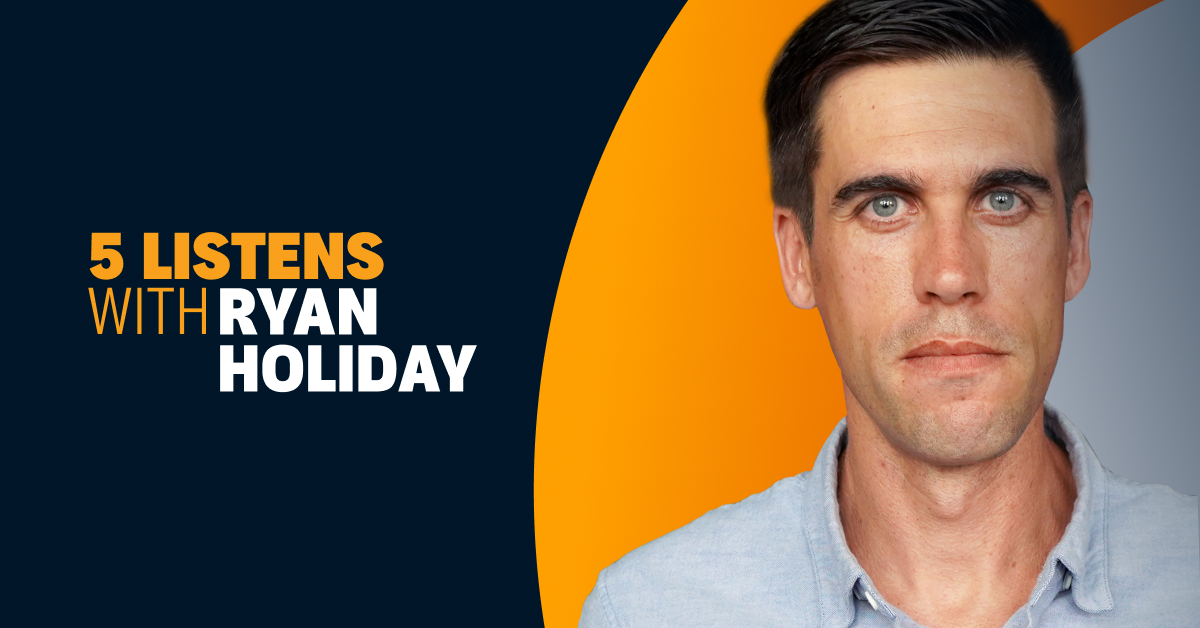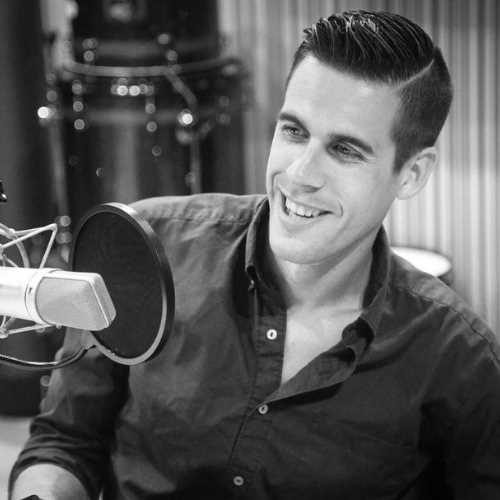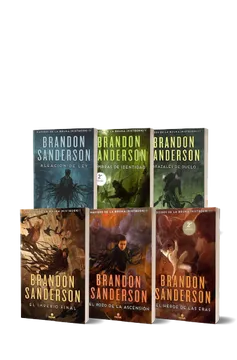5 Listens With Ryan Holiday
Por un escritor de hombre misterioso
4.7 (281) En stock

Guest editor Ryan Holiday shares his favorite listens
<p>Seneca said that, when learning from history and literature, ignore the specific facts and figures and instead focus on the moral lessons. Focus on what the characters can teach you about life, he said. Plutarch, the great moral biographer of history, took this idea to heart. Rather than publish big, thick books filled with footnotes and postmodern digressions, Plutarch was obsessed by what we could learn from the figures he wrote about. “For neither is it histories we are writing, but lives,” Plutarch explained, “nor is there by any means display of merit or vice in the most outstanding actions, but often a trivial matter as well as a remark and some joke have offered a better illustration of character than clashes with countless casualties and the biggest battalions and sieges of cities.” It’s on this model that my book, <i>Lives of the Stoics</i>, is written. We study the lives of these men and women for the same reason Plutarch (who wrote about many of the Stoics as well) did: so that they might inspire us to follow in their footsteps.</p>
<p>Dr. Edith Eger is a complete hero of mine. At 16, she’s sent to Auschwitz. And how does this not break a person? How do they survive? How do they endure the unendurable? And how do they emerge from this, not just not broken, but cheerful and happy and of service to other people? The last thing Dr. Eger’s mother said to her before she was sent to the gas chambers was that very Stoic idea: Even when we find ourselves in horrendous situations, we can always choose how we respond to them, who we’re going to be inside of them, what we’re going to hold onto inside of them. Dr. Eger quotes the one and only Dr. Viktor Frankl, who she later studied under: “Everything can be taken from a man but one thing: the last of the human freedoms—to choose one’s attitude in any given set of circumstances, to choose one’s own way.” It was this idea that allowed Dr. Eger to not only endure unimaginable suffering, but to find meaning in it. She went on to become a psychologist and survives to this day, still seeing patients and helping people overcome trauma. I had the incredible honor of interviewing Dr. Eger and the joy and energy of this woman, this 95-year-old Holocaust survivor, was incredible.</p>
<p>For as long as there have been people, there have been people doing stupid things because they were angry. Moses killing the Egyptian, Xerxes lashing the river, Alexander the Great brawling and killing his best friend, Caligula declaring war against the sea, Ivan the Terrible killing his own son. Me? When I think back on my own life, I can’t think of a single time I was glad I lost my temper. The Stoics wrote about dealing with their tempers more than just about any philosophical school. In fact, one of the most famous essays in all of Stoicism is Seneca’s "De Ira," or "Of Anger," which was translated by his great biographer James Romm in <i>How to Keep Your Cool</i>. And if you really want to get serious about dealing with anger in your life, check out our Daily Stoic course "Taming Your Temper: The 11-Day Stoic Guide to Controlling Anger" at dailystoic.com/anger.</p>
<p><i>The Moviegoer</i> is my all-time favorite novel. The story is almost truer now for the millennial (or generational) experience than it was in the 1960s when it was published. Any reader will relate to the rather ageless angst of the next generation trying to find its meaning and purpose in the world. It is exactly the novel that every one stuck in their own head needs to read. The main character, on what he calls “the search,” is so in love with the artificiality of movies that he has trouble living his actual life in the real world.</p>
<p>I read my first Robert Caro book about 15 years ago. I’ve raved about many of my favorite epic biographies, but Caro’s LBJ series is at the top of my list. Caro is a master of his craft. I marvel at how, despite being some 3,000+ pages, his books fly by and you learn something about history, human nature, and power on almost every page. So when he published <i>Working</i>, a behind-the-scenes look at his process, it seemed like one of those books written specifically for me. But I would highly recommend this book to anyone who is interested in history, the art of biography, the process of research and writing, or simply the joys of hearing a master storyteller at work.</p>

Ryan Holiday — Shower Thoughts — Jason Crawford

The Growth Show with Suhaas Venkatesh (podcast) - Suhaas MV

5 Listens With Ryan Holiday

Ryan Holiday, Keynote Speaker

Courage Is Calling (Summarized by the Author) in 5 Minutes
Life is short. Do not forget about the most important things in our life, living for other people and doing good for them.--Marcus Aurelius Becoming a parent is more than just a biological process - it's a lifelong commitment to sacrifice, service, and most importantly, love. It's a challenge to get up every day and put your kids first. You will experience moments of heroic compassion and humiliating failure, sometimes within the same day. But you don't have to do it alone.

The Daily Dad: 366 Meditations on Parenting, Love and Raising Great Kids [Book]

Ego Is The Enemy by Ryan Holiday: What You Can Learn

A daily dose of Stoicism: How author Ryan Holiday doubled his email list one newsletter at a time - ConvertKit

The Daily Stoic Podcast on Spotify
Ryan Holiday Sells Stoicism as a Life Hack, Without Apology - The New York Times
How To Read Like A Pro — Lessons I've Learnt From Ryan Holiday, by Tom Addison
 Alimentos crudos, alimentos cocinado o la combinación de ambos
Alimentos crudos, alimentos cocinado o la combinación de ambos Placa Polivalente Vitrocerámica - Teka TTC 64010 CRD, 4 Zonas de
Placa Polivalente Vitrocerámica - Teka TTC 64010 CRD, 4 Zonas de UNI Posca Estuche de 4 Rotuladores PC5m de Color Pastel de Punta Cónica Medio : .es: Hogar y cocina
UNI Posca Estuche de 4 Rotuladores PC5m de Color Pastel de Punta Cónica Medio : .es: Hogar y cocina Plato de ducha gris antracita RAL7011 con efecto piedra pizarra, serie Lisboa, 3 cm, revestimiento de Gelcoat, antideslizante (70 x 170 cm) : : Bricolaje y herramientas
Plato de ducha gris antracita RAL7011 con efecto piedra pizarra, serie Lisboa, 3 cm, revestimiento de Gelcoat, antideslizante (70 x 170 cm) : : Bricolaje y herramientas- Pip Studio Official
 Libro Pack Brandon Sanderson - Nacido de la Bruma - 1 - 2 - 3 - 4
Libro Pack Brandon Sanderson - Nacido de la Bruma - 1 - 2 - 3 - 4